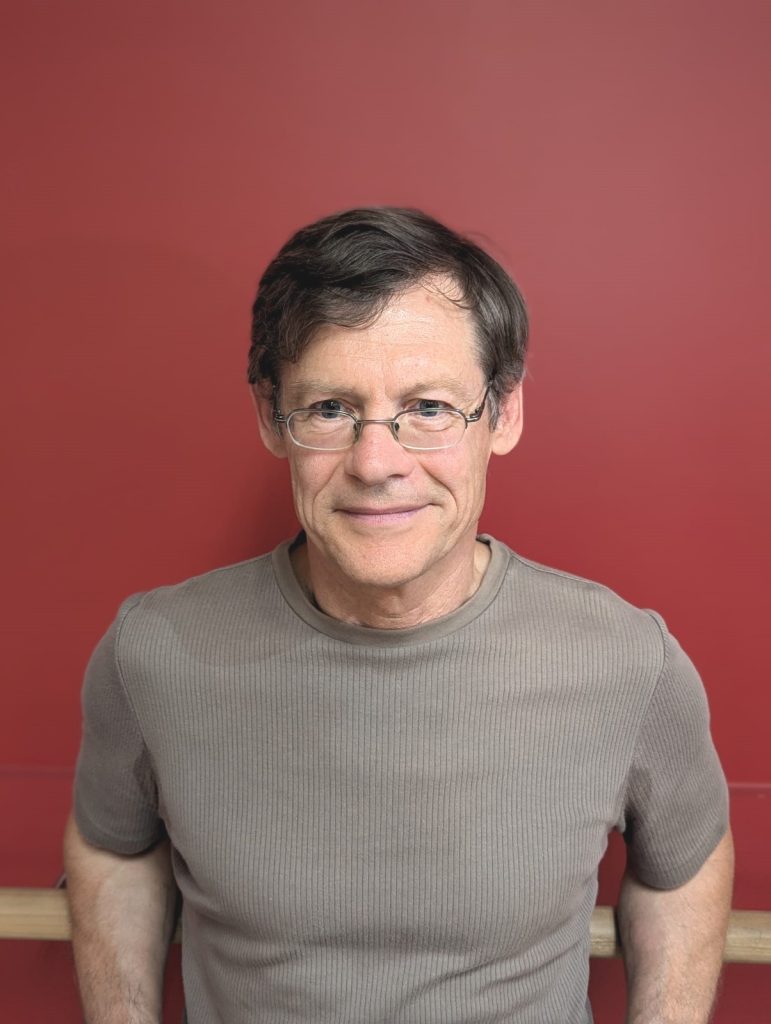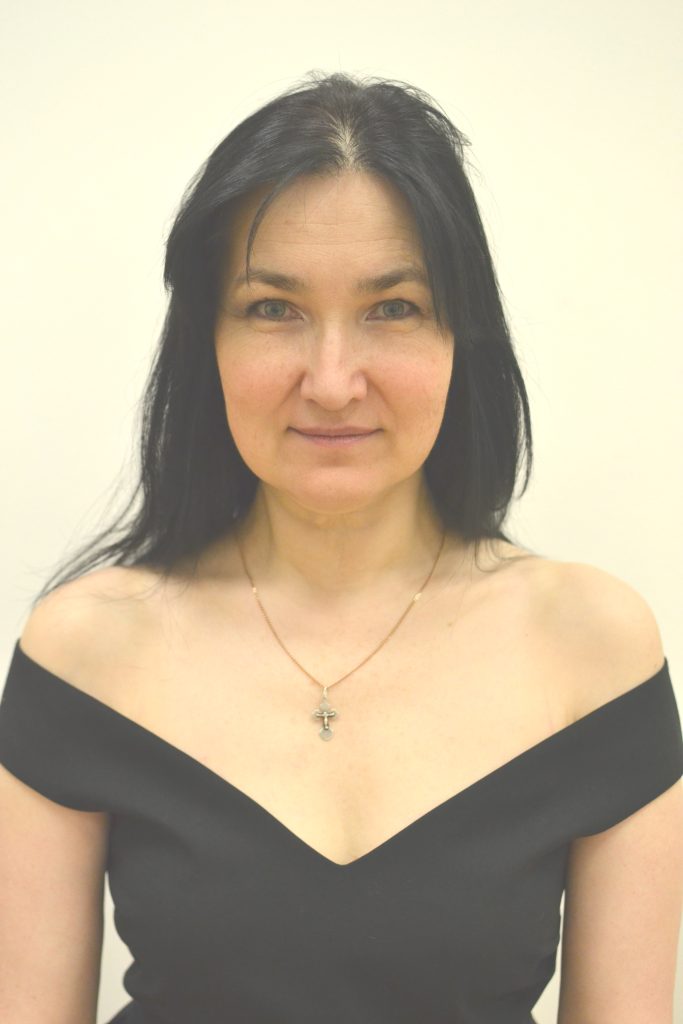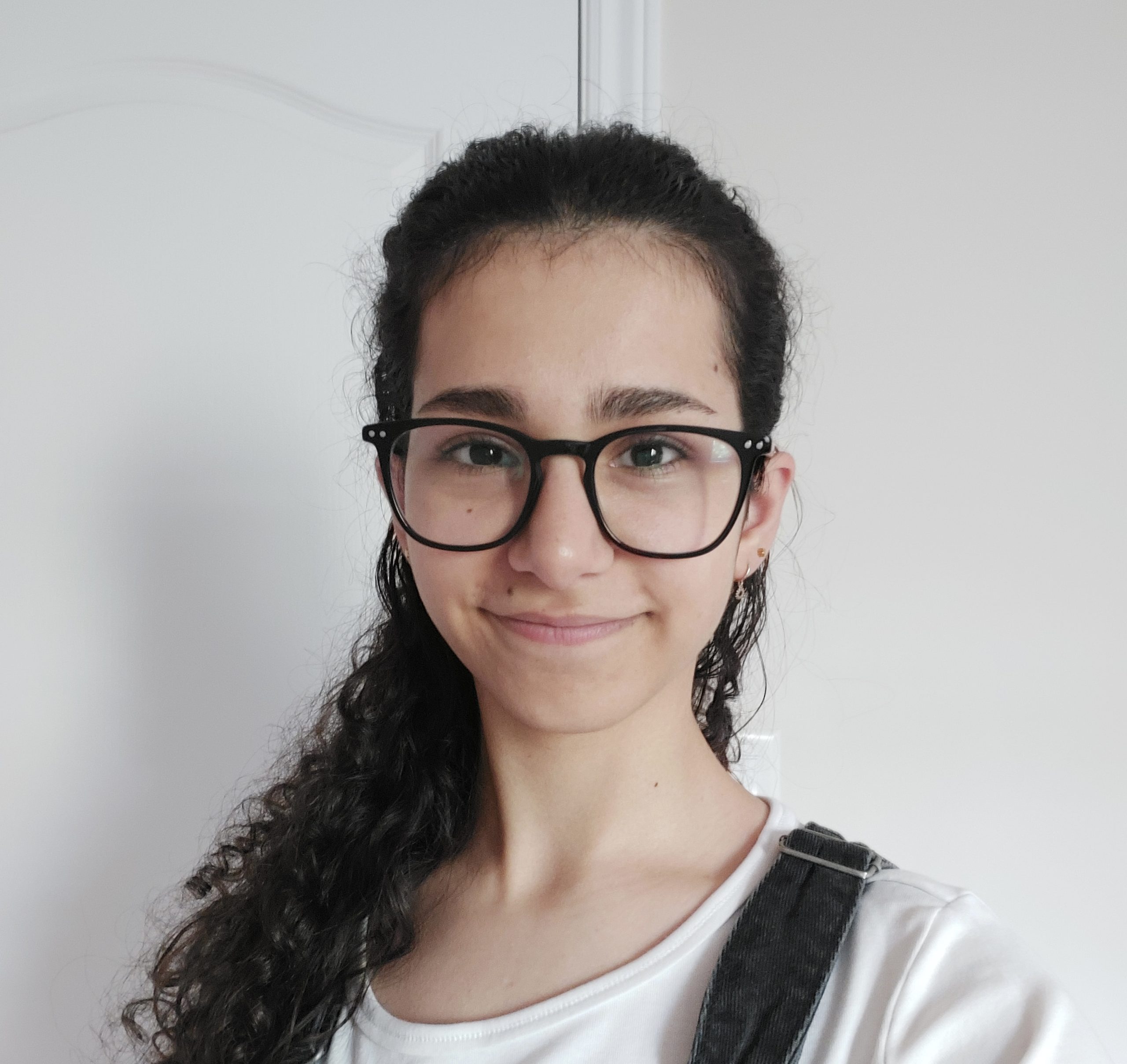Human or Computer?: An Interview with Yuriy Popov and Yana Menov

This might not be the first time on stage for Yuriv Popov and Yana Menov—the founder and creative director of Studio Reflection, respectively—but it is their first time performing a piece that is 100% theirs. After translating playwright Igor Yakimov’s The Turing Test from Russian to English, the two get to be their own directors, actors, and designers. With over 50 custom-made video clips, sound clips, and even perfectly timed captions, The Turing Test is beautifully immersive and fully accessible for individuals who are deaf or have hearing impairments. After being performed in Bulgaria, San Diego, Toronto, and many other cities around the world, The Turing Test is coming to Kingston as a part of the Theatre Kingston Fringe Festival.
As the title suggests, a Turing test is being conducted throughout the play. The story follows a scientist who, under pressure to save his lab from shutdown, makes a desperate deal with an AI company. In exchange for funds, he agrees to test a housekeeper that the company provides. The catch? He doesn’t know whether she’s human or machine, and he has only 24 hours to uncover her identity.
This interview has been edited for length and clarity.
Could you briefly explain what a Turing test is and how it relates to your performance?
Popov: The Turing test is an imitation game. Back in the day, it was very popular, especially during parties. Two people would be in different rooms, and they were chatting, exchanging messages. So, they don’t see each other, don’t hear each other. And they need to, through this messaging exchange, structure your questions in a certain way to figure out who you’re talking to, whether it’s a woman or a man. Alan Turing, the scientist who started this whole computer world, he just had a cool idea: why don’t we replace humans with machines and see what happens? And if the other person couldn’t tell the difference, what does it mean? Did we just prove that machines can think? So, then maybe we can state that the machine has some intelligent behavior.
So, that’s how it started; that’s the essence of the Turing test. But in our show, it’s not about robots, it’s also about people. You can’t always tell if the person you’re talking to is completely honest with you.
Menov: It’s not just whether the character is a machine or human. But also, it’s a metaphor for a relationship, love, and how we behave, and how honest we are. It’s much deeper, I would say.
Popov: It’s more like, do I even know how to love someone?
Menov: And how human people in general are. Sometimes we feel like the current technology and lifestyle make us less human.

How is The Turing Test different from other productions you’ve been a part of?
Popov: Well, this is the most tech-integrated show we’ve ever created. So, it all started from some innocent question: why don’t we add some captions to our show? And it sounded simple, but we had no idea what we were signing up for. We use about 50 custom-made video clips during the whole show. And those clips embed music, embed sound, some videos, of course, and perfectly timed captions. So, it turned into some editing marathon. Syncing everything, adding effects, embedding text, and getting timing right. If we knew how much work it would be, we might not have even started this whole thing. But, in the end, we were glad we did it.
Menov: And I’ll just add that it’s not only captions. This work was completely new for us. Because before, we were just actors. We took part in different projects. But this project is 100% ours. And that’s why it’s completely different. And we have to be directors, actors, designers, everything. In a small company, you have to know and you have to do everything. So, yeah, we have an expression in Russian about that. It’s like, you have to be anything. And sometimes it was even overwhelming. But I think we made this, and it was challenging and interesting and it brought us to the next level. Because, yeah, it’s such an experience. It’s so valuable.
What was the biggest challenge you faced when directing this performance?
Menov: The biggest challenge is being your own boss. And nobody directs you, no one guides you. It’s only the two of us. There’s no third party who can tell you you are right and you are wrong. You have to find the compromises to make everything the best.
Popov: Yes, I want to add this. One of the hard parts was to think of everything. Music, video, captions, and timing, everything. If we’re off by a few seconds, the show starts to feel strange and awkward. And again, we didn’t want to be completely digital. We just wanted to bring some feelings.
Menov: The biggest thing, the biggest obstacle is fear. What if we didn’t succeed? What if people didn’t understand us? What if nobody comes, you know? This is the big question, too. Because nobody knows us. And we become more flexible, more resistant, and fearless.

Is there a particular scene that you’re excited to perform, and what makes it stand out for you?
Popov: For me, it’s the final scene in part one. When Alan, the main character, finally lets go. All tests, suspicions, and calculations are done. And the first time, he just stopped trying to figure out who she is, but just let feelings come to his heart. So they drink, they dance, they talk about things, they get closer, and they nearly kiss, but awkwardly miss. And it was kind of clumsy and beautiful. And finally, you see this character drop his guard; he doesn’t try to prove anything anymore. He’s just there, together, falling in love.
Menov: For me, it’s like the final scene. Because it’s so emotional, every time we rehearse, it still feels raw and honest. And it gives you goosebumps when their masks drop and all secrets are revealed. And this is, for me, it’s very emotional and very deep. And almost every time I cry, you know, for me, it’s the most touching thing.
What message or feeling do you hope the audience walks out with after watching the show?
Menov: How to be more human. What is a relationship? What is the value of life interactions? Because nowadays, everything is online. Everything is digital. And we sometimes forget that we are human and that we need humans. We’d like to remind people that technology is good. It’s fine. It’s awesome. But still, we have to be people, you know?
Popov: We go through life on autopilot. Emails, traffic, eat, drink, small talk, Netflix, repeat. So it’s just, you know, sometimes it feels like you’re a machine. And the purpose of our show is to, you know, remind people that, you know, try to feel something. When was the last time you felt something? That’s what we want people to think about.
Menov: And another thing is that feelings are devalued nowadays. And to find true love is very valuable and rare nowadays. I don’t want to tell people, ‘you have to’. But I would like people to look at their relationship, their life, differently. I don’t want to teach anybody. And maybe they will be maybe a little bit happier after our show. I hope so.
Yuriy Popov is a Toronto-based actor and the founder of Studio Reflection. Equally at home in dramatic roles and technical design, he blends psychological insight, humor, and multimedia storytelling to craft performances that resonate deeply. His work has been featured internationally, always aiming to provoke thought and stir emotion.
Yana Menov is the creative director of Studio Reflection and a powerful presence on stage. Known for her fearless imagination and emotional precision, she drives bold artistic visions forward. Her performances and productions—both poetic and daring—bridge cultures and leave lasting impressions on audiences across borders.
‘The Turing Test’ runs daily from August 7-11, 2025 at Davies Lounge for the TK Fringe festival. More information about the festival and tickets can be found here.
